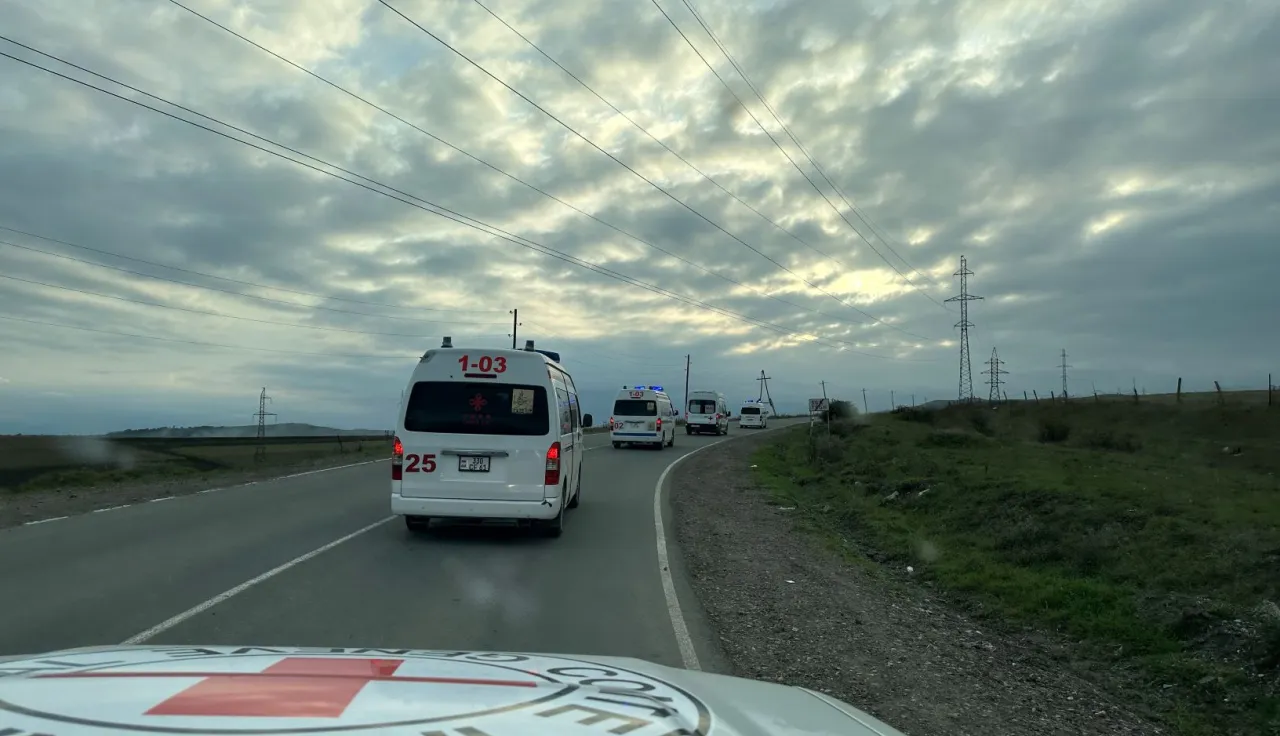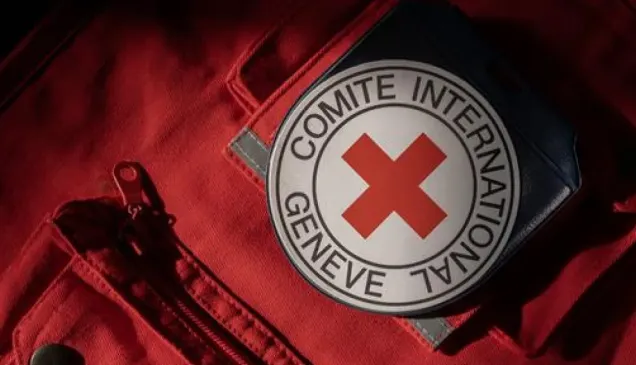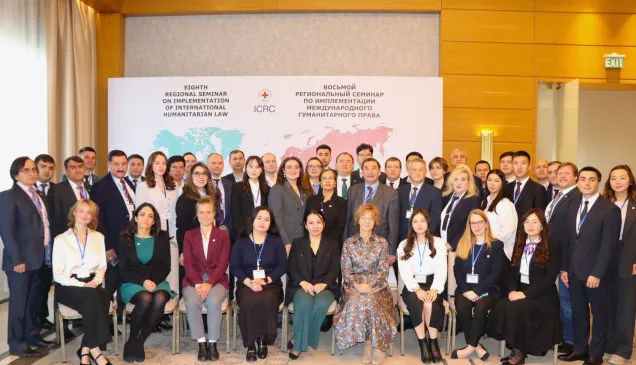The humanitarian goods -- destined for communities in need -- included 66 metric tons of wheat flour, 2,700 kilograms of salt, 450 kilograms of dried yeast, and 375 litres of sunflower oil.
An ICRC team on Saturday also carried out the medical evacuation of 17 people wounded during the fighting. The team delivered medical supplies and body bags for the dignified management of the dead to the local hospital.
This humanitarian work is possible because of ICRC’s role as a neutral intermediary. The ICRC speaks to all actors involved in a given situation of armed conflict to gain acceptance and carry out life-saving work for the greatest number of victims of violence possible.
Despite a recent cease-fire, the humanitarian consequences of the military escalation are strongly being felt across the region. Families are searching for relatives they have lost contact with, including unaccompanied children. Communities have been displaced and relatives are asking for assistance to bury dead bodies, while a lack of electricity, basic commodities and access to health care makes life difficult.
Given the scale of humanitarian needs, the ICRC is increasing its presence in the region by adding personnel specializing in health, forensics, protection issues, and weapons contamination issues.
About the ICRC
The International Committee of the Red Cross (ICRC) is a neutral, impartial and independent organization with an exclusively humanitarian mandate that stems from the Geneva Conventions of 1949. It helps people around the world affected by armed conflict and other violence, doing everything it can to protect their lives and dignity and to relieve their suffering, often alongside its Red Cross and Red Crescent partners.
For more information, please contact:
Jason Straziuso, ICRC Geneva, tel: +41 79 949 3512, jstraziuso@icrc.org
Ilaha Huseynova, ICRC Baku, tel : +99450 316 00 24, ihuseynova@icrc.org
Zara Amatuni, ICRC Yerevan, tel: +374 99 011 360, zamatuni@icrc.org




